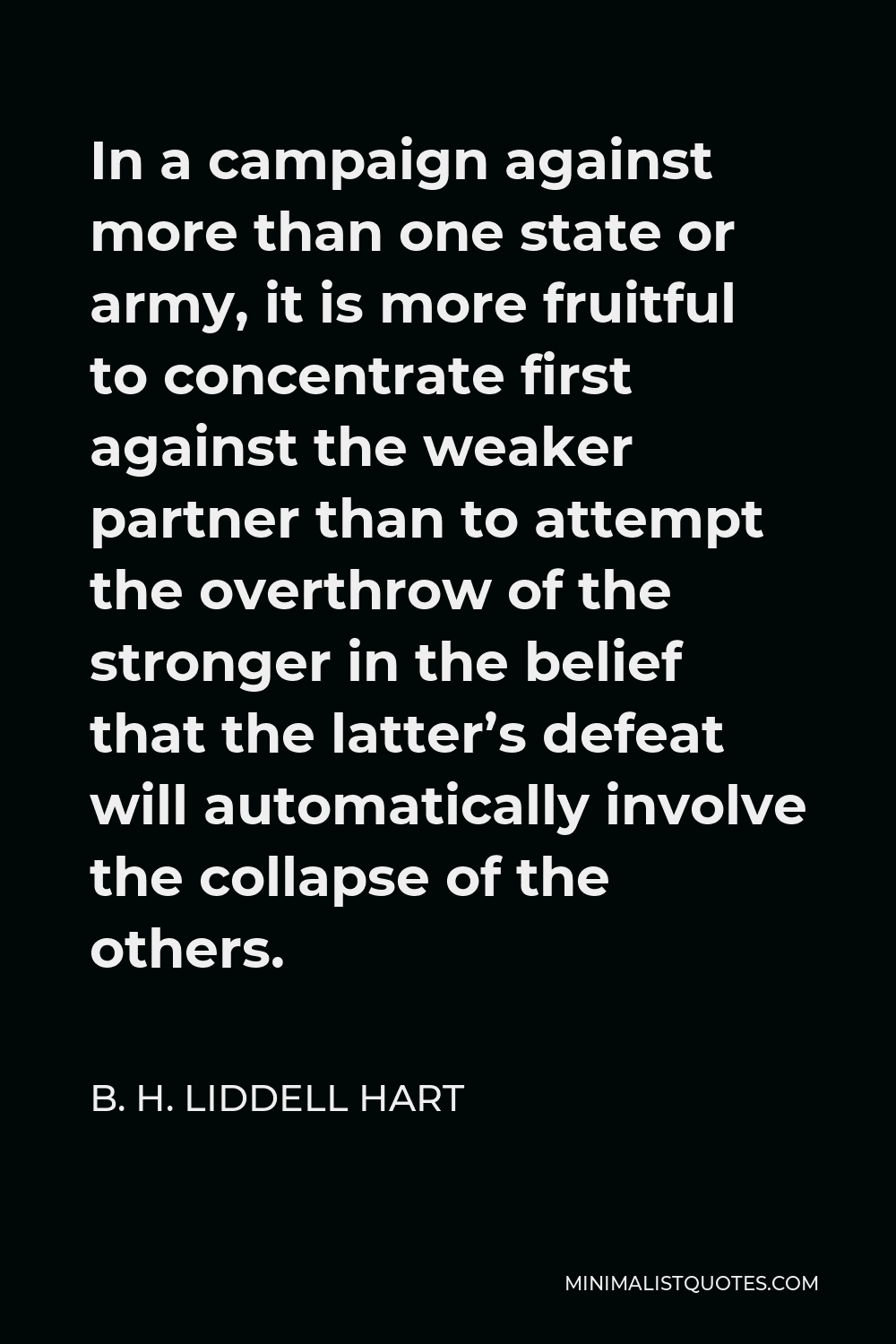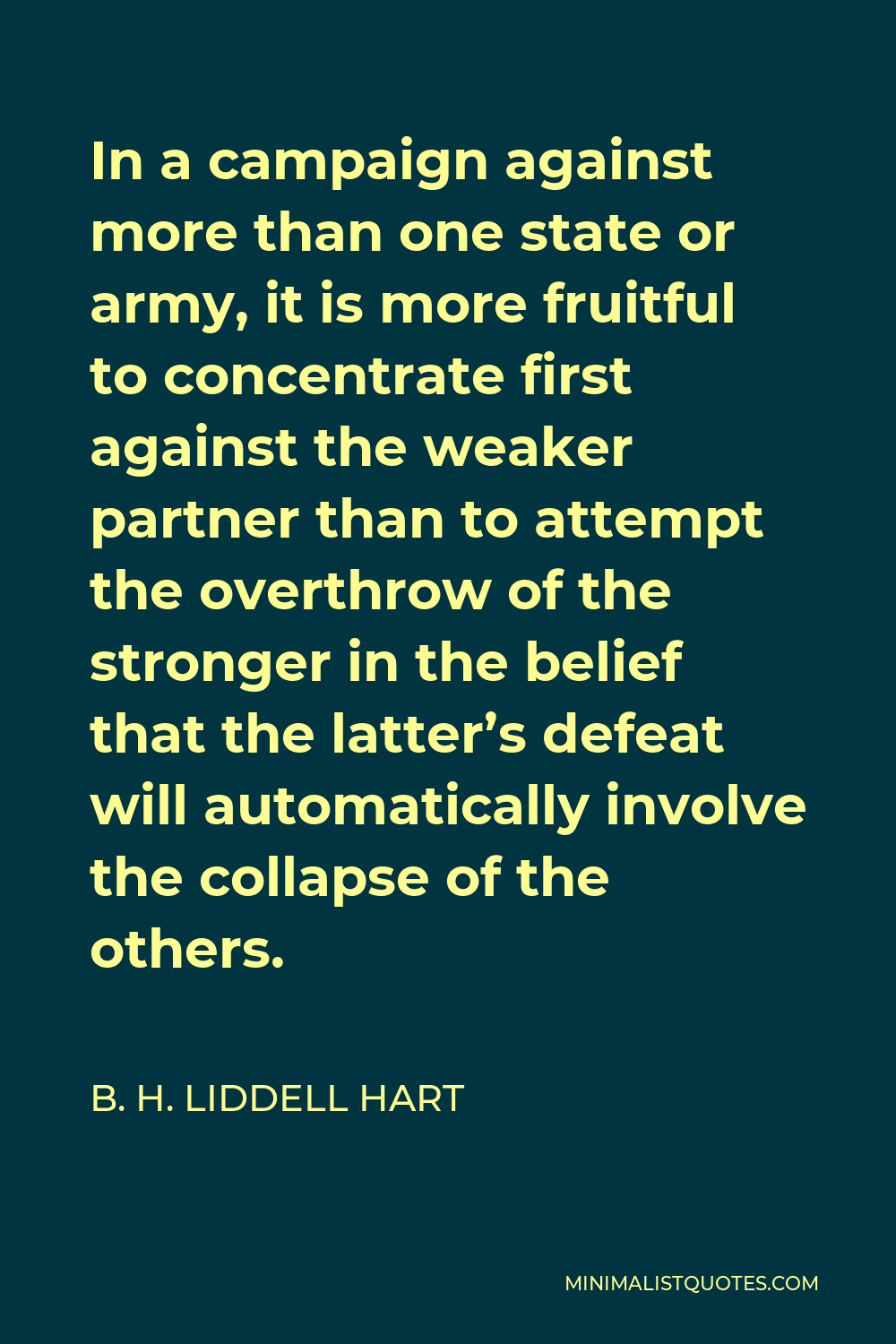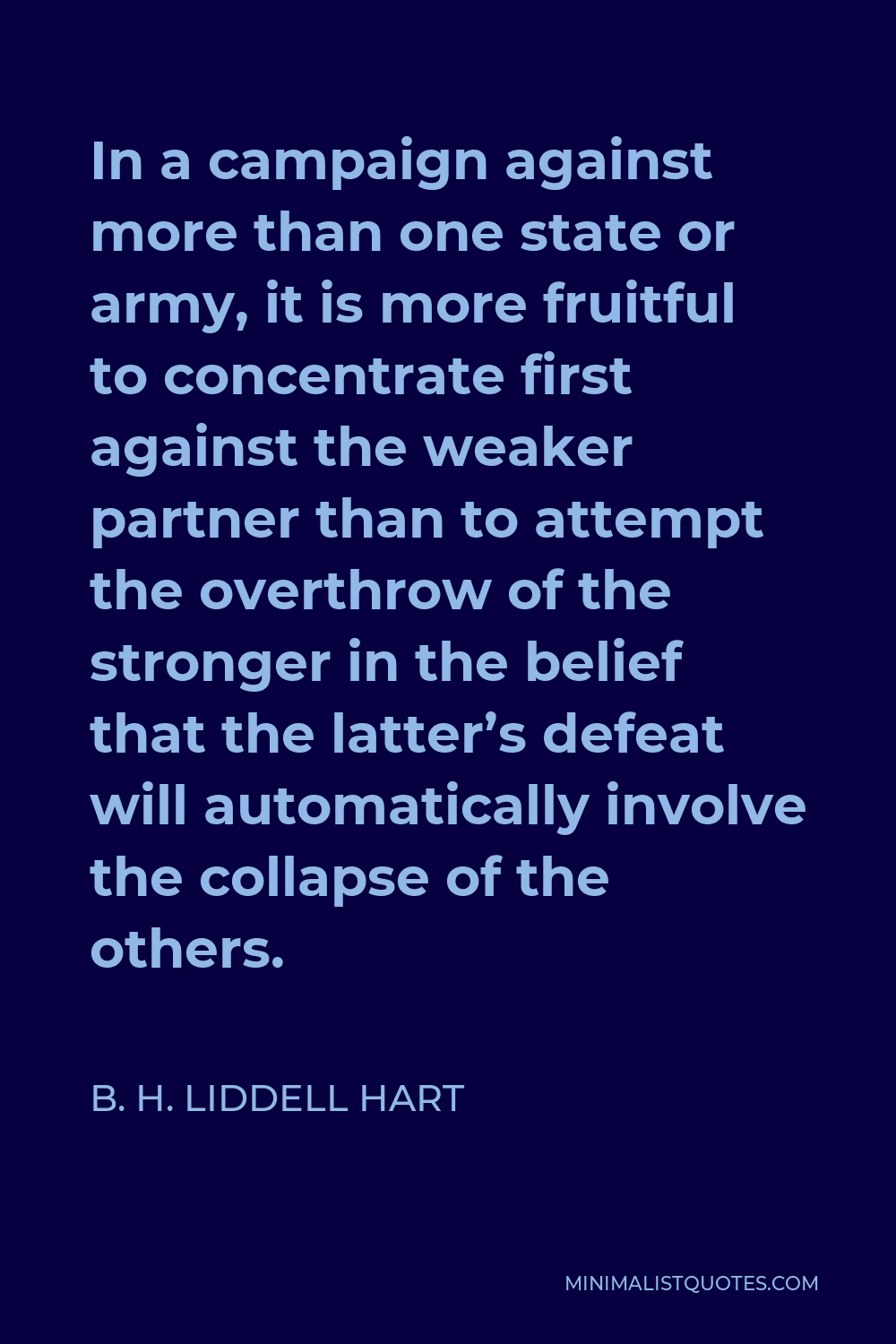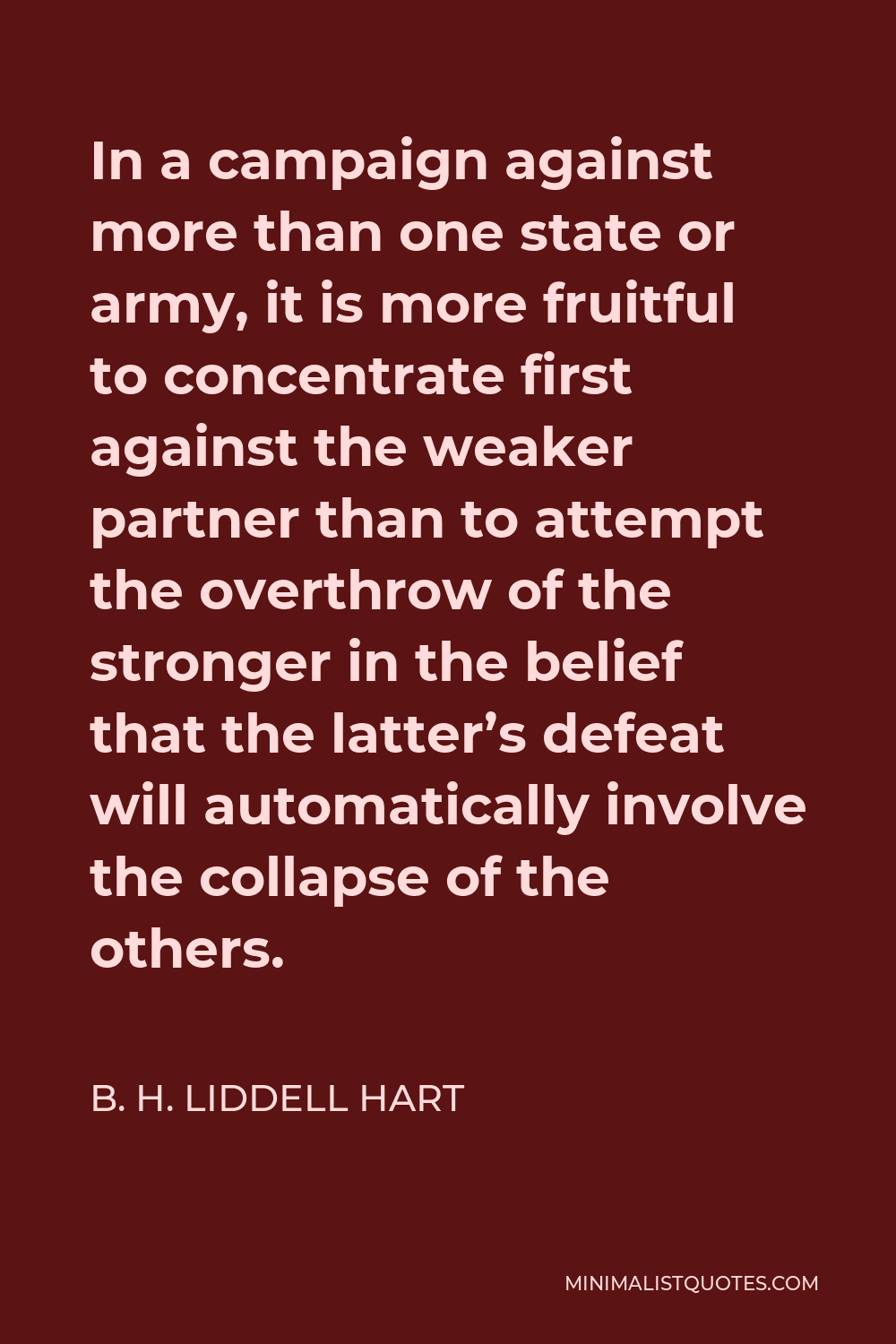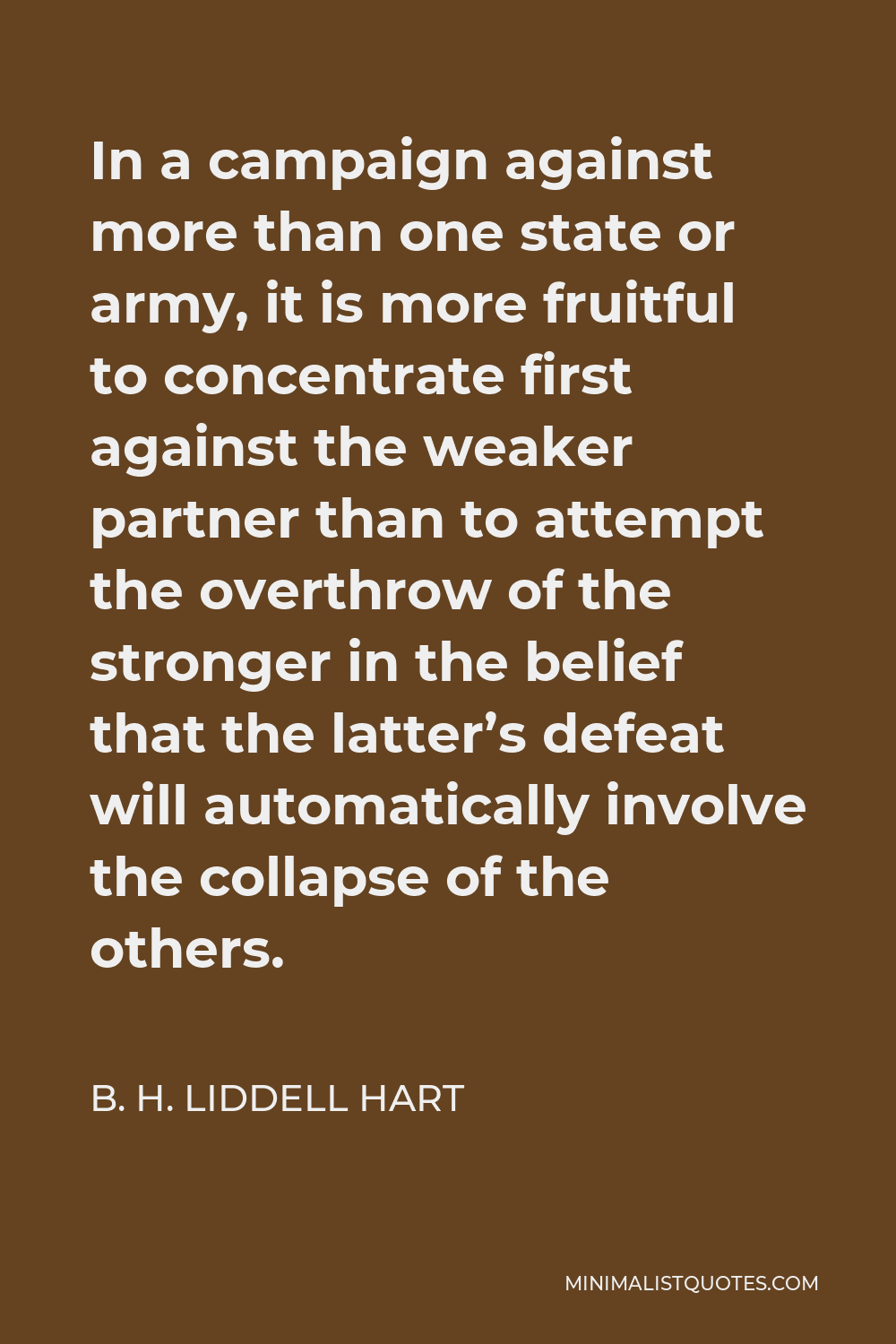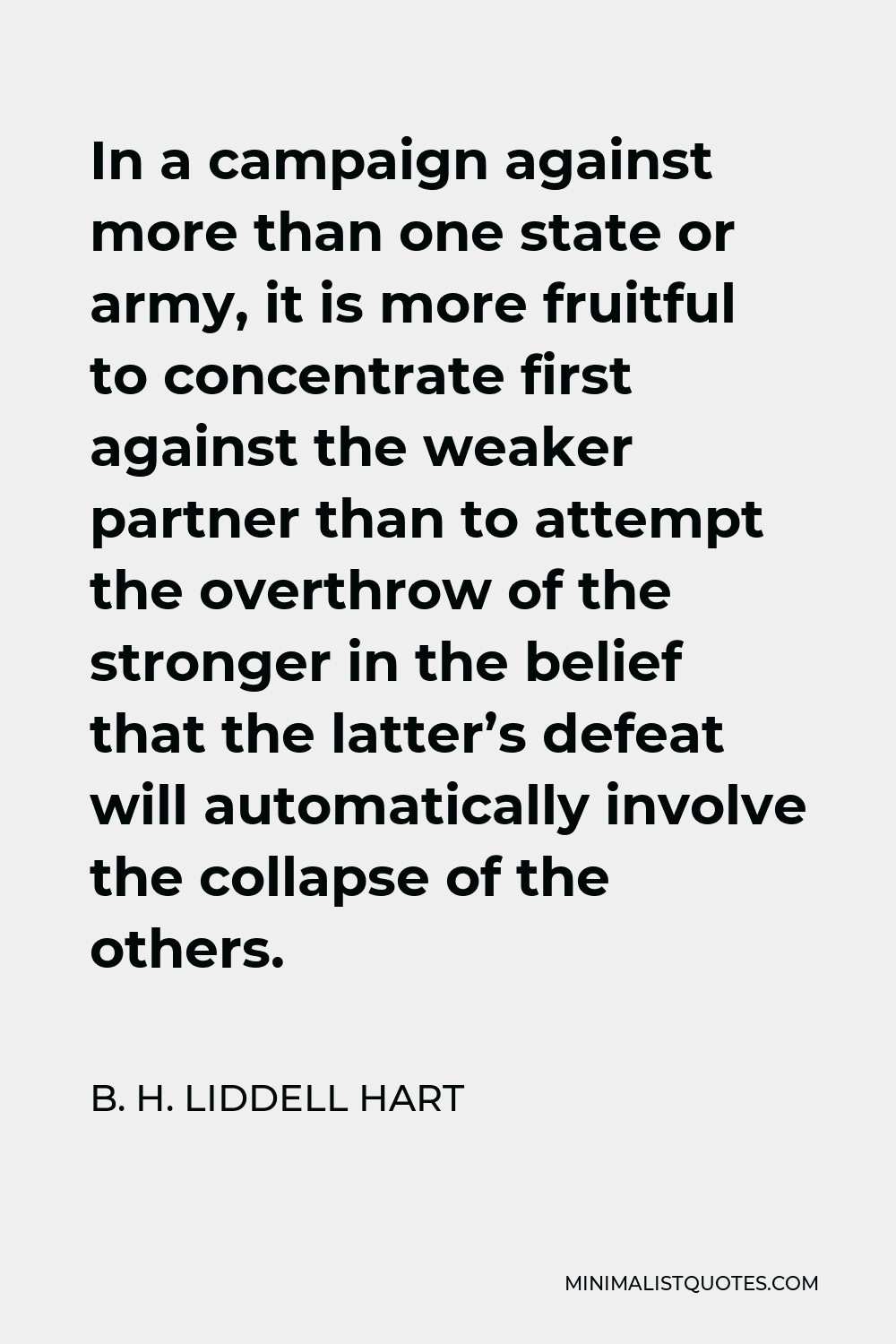No man can exactly calculate the capacity of human genius and stupidity, nor the incapacity of will.
B. H. LIDDELL HARTIn a campaign against more than one state or army, it is more fruitful to concentrate first against the weaker partner than to attempt the overthrow of the stronger in the belief that the latter’s defeat will automatically involve the collapse of the others.
More B. H. Liddell Hart Quotes
-





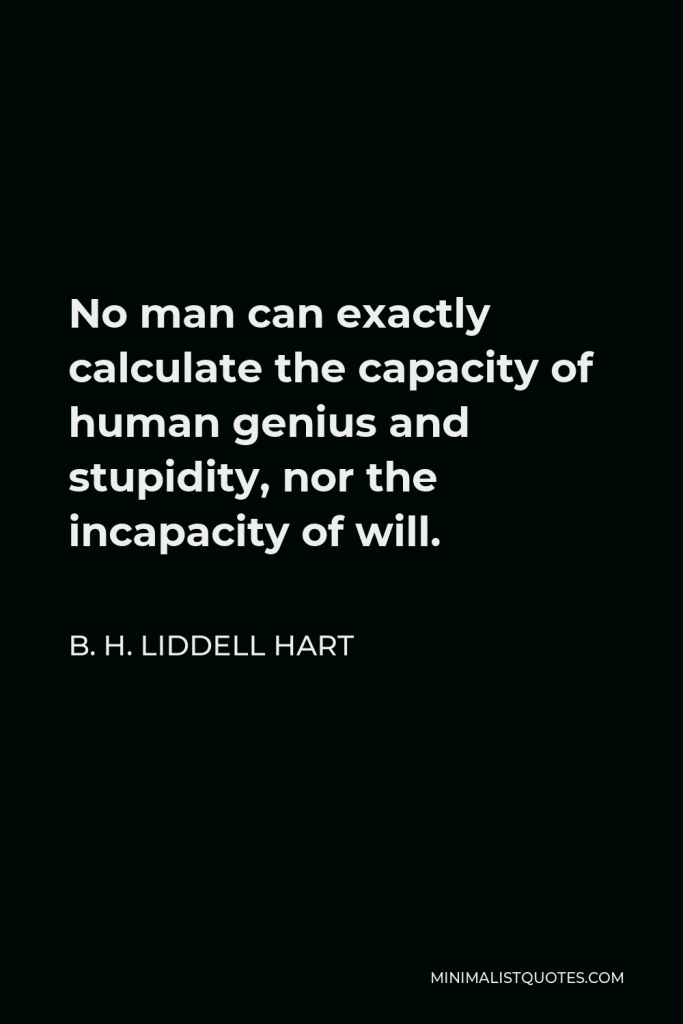

-





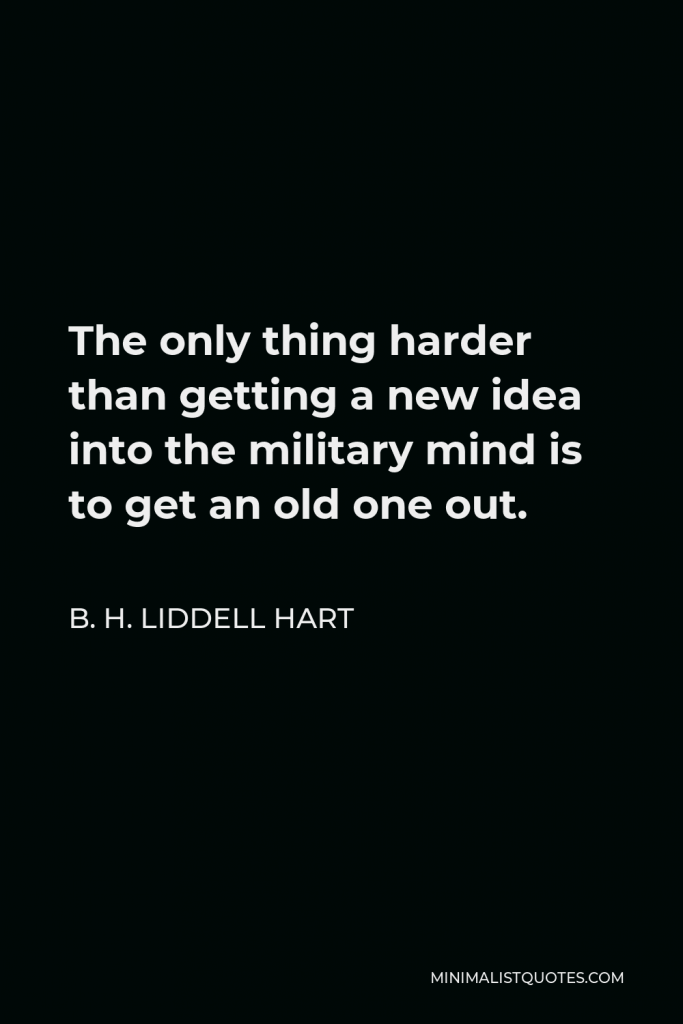

The only thing harder than getting a new idea into the military mind is to get an old one out.
B. H. LIDDELL HART -







Ensure that both plan and dispositions are flexible, adaptable to circumstances. Your plan should foresee and provide for a next step in case of success or failure.
B. H. LIDDELL HART -





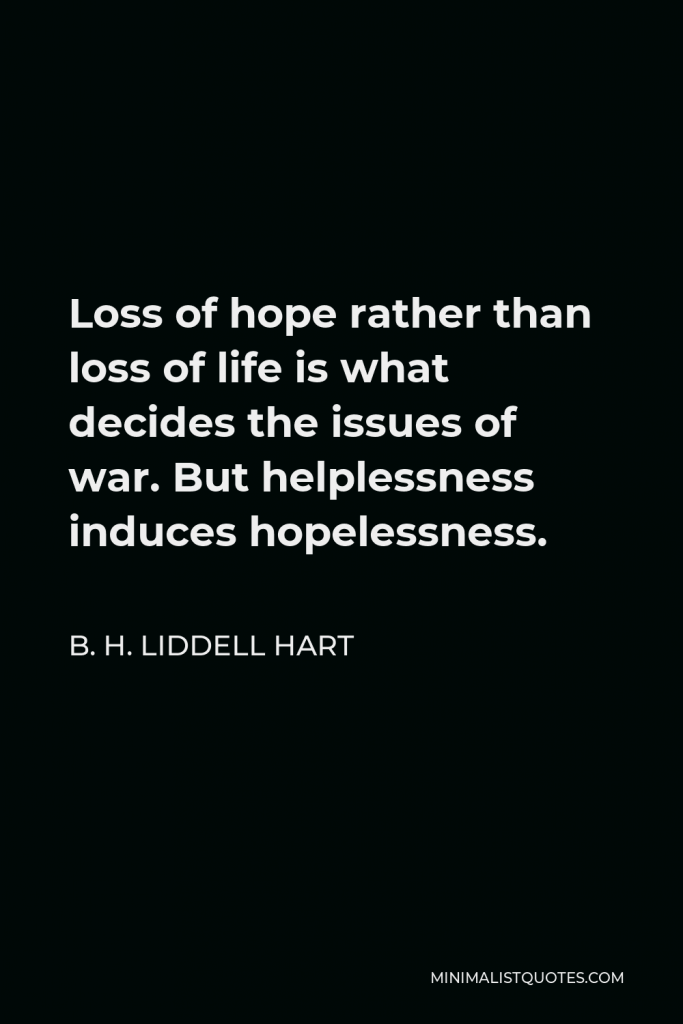

Loss of hope rather than loss of life is what decides the issues of war. But helplessness induces hopelessness.
B. H. LIDDELL HART -





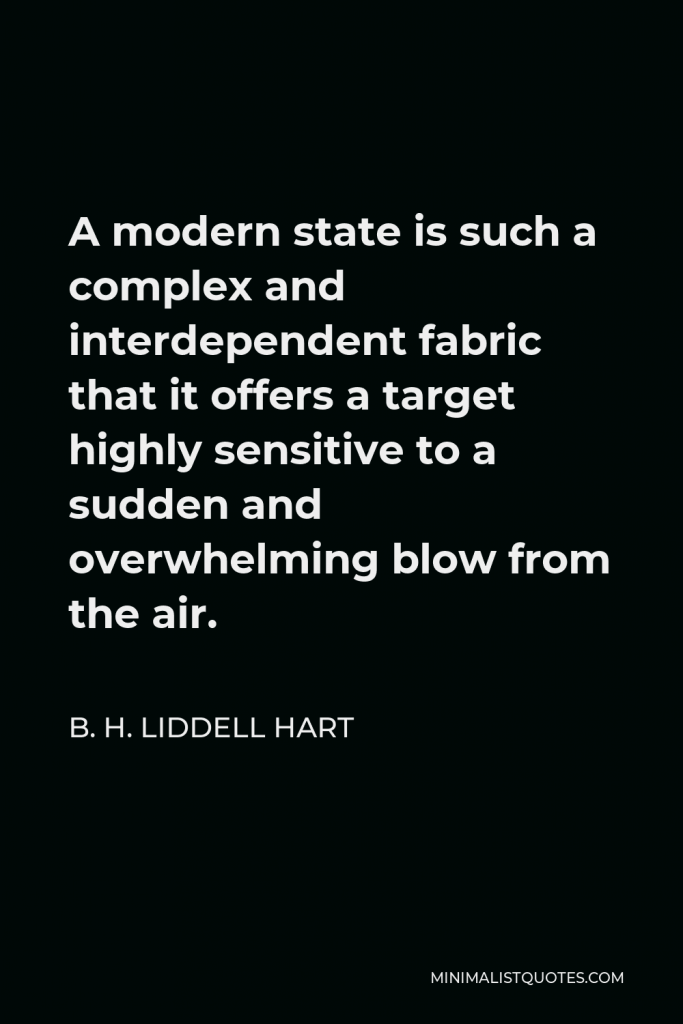

A modern state is such a complex and interdependent fabric that it offers a target highly sensitive to a sudden and overwhelming blow from the air.
B. H. LIDDELL HART -





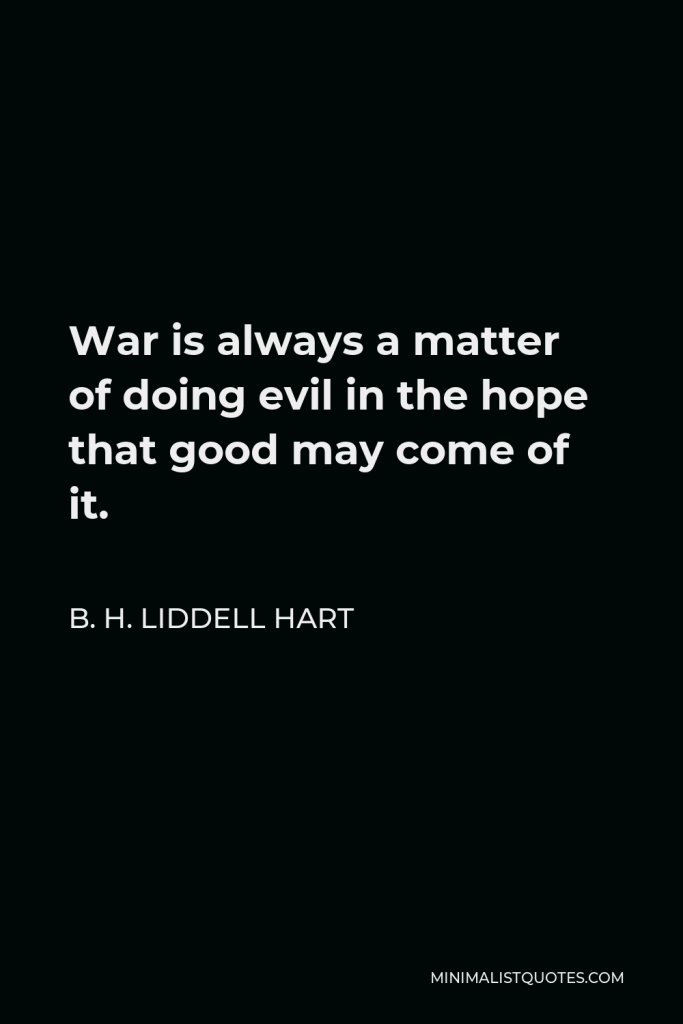

War is always a matter of doing evil in the hope that good may come of it.
B. H. LIDDELL HART -





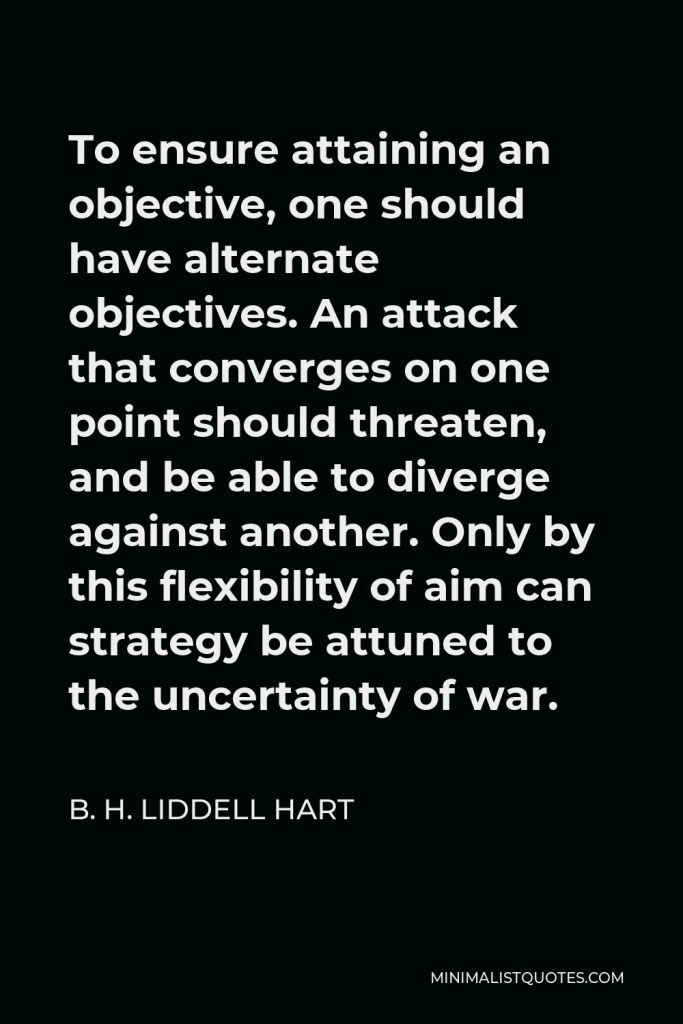

To ensure attaining an objective, one should have alternate objectives. An attack that converges on one point should threaten, and be able to diverge against another. Only by this flexibility of aim can strategy be attuned to the uncertainty of war.
B. H. LIDDELL HART -





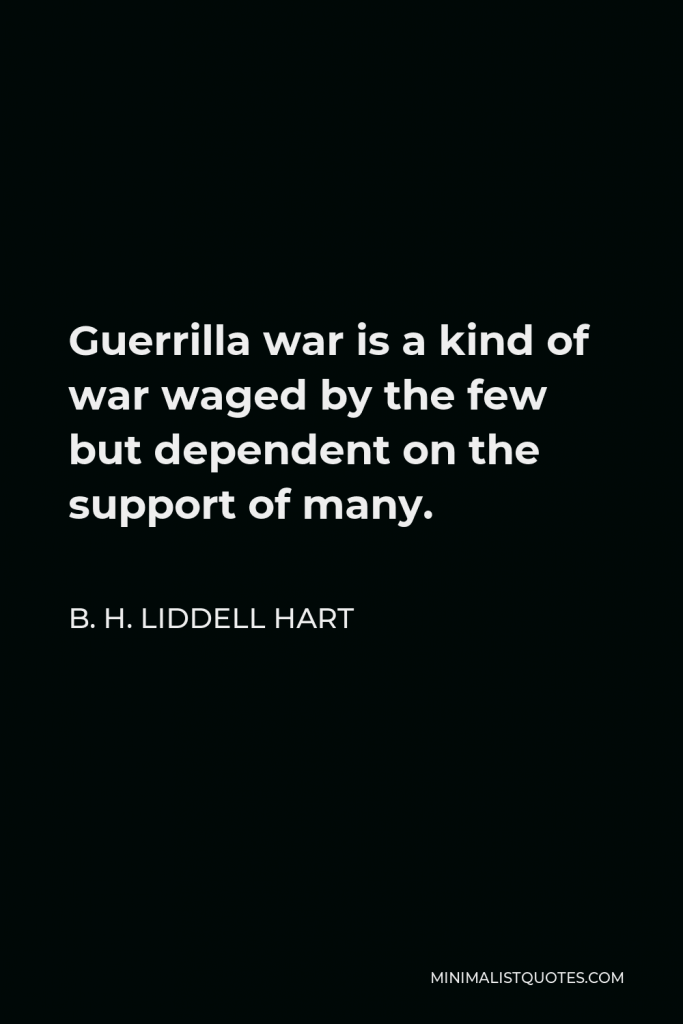

Guerrilla war is a kind of war waged by the few but dependent on the support of many.
B. H. LIDDELL HART -







The search for the truth for truth’s sake is the mark of the historian.
B. H. LIDDELL HART -







It is only to clear from history that states rarely keep faith with each other, save in so far (and so long) as their promises seem to them to combine with their interests.
B. H. LIDDELL HART -





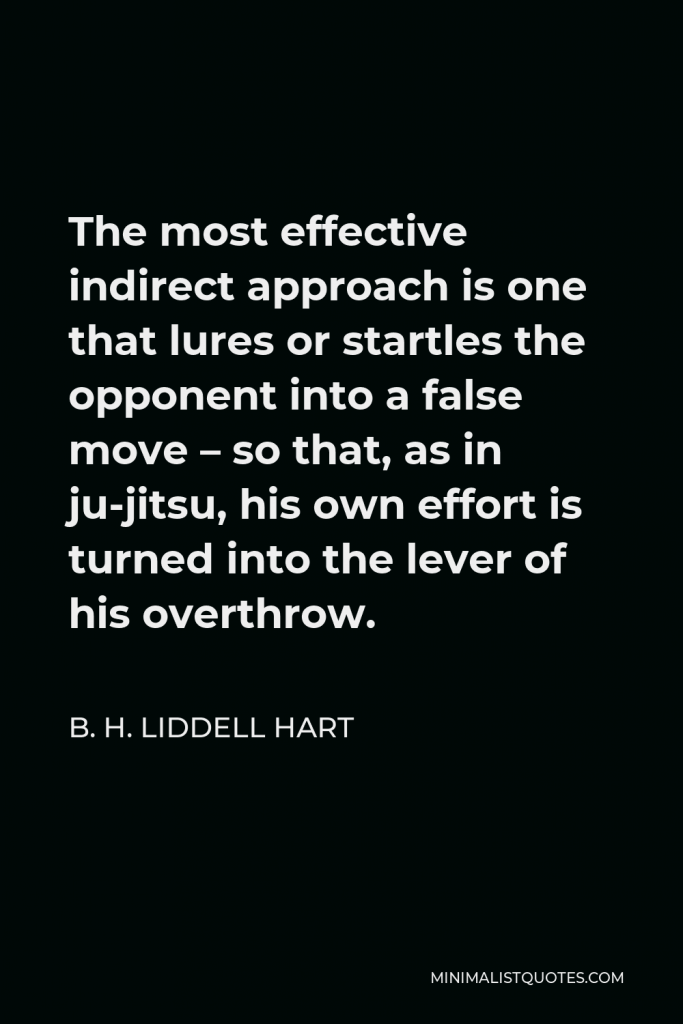

The most effective indirect approach is one that lures or startles the opponent into a false move – so that, as in ju-jitsu, his own effort is turned into the lever of his overthrow.
B. H. LIDDELL HART -





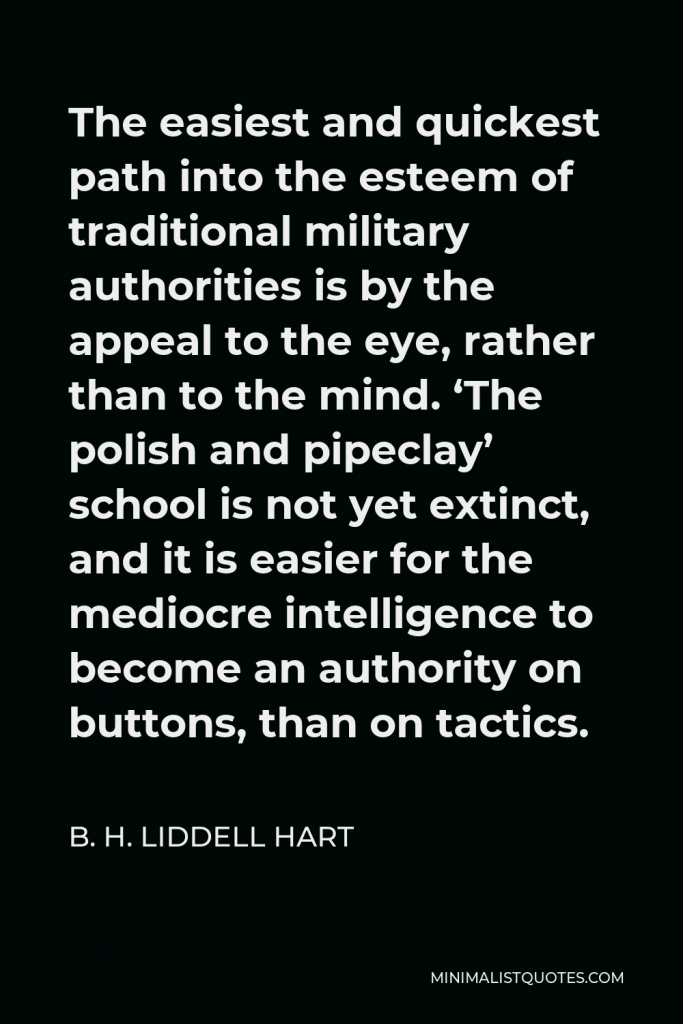

The easiest and quickest path into the esteem of traditional military authorities is by the appeal to the eye, rather than to the mind. ‘The polish and pipeclay’ school is not yet extinct, and it is easier for the mediocre intelligence to become an authority on buttons, than on tactics.
B. H. LIDDELL HART -





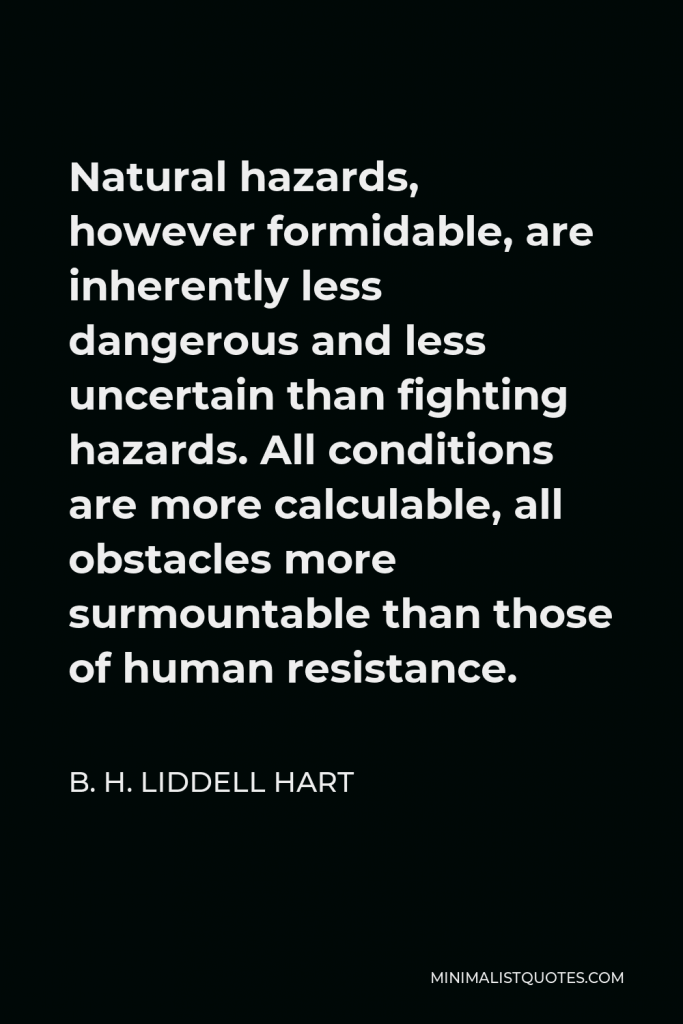

Natural hazards, however formidable, are inherently less dangerous and less uncertain than fighting hazards. All conditions are more calculable, all obstacles more surmountable than those of human resistance.
B. H. LIDDELL HART -





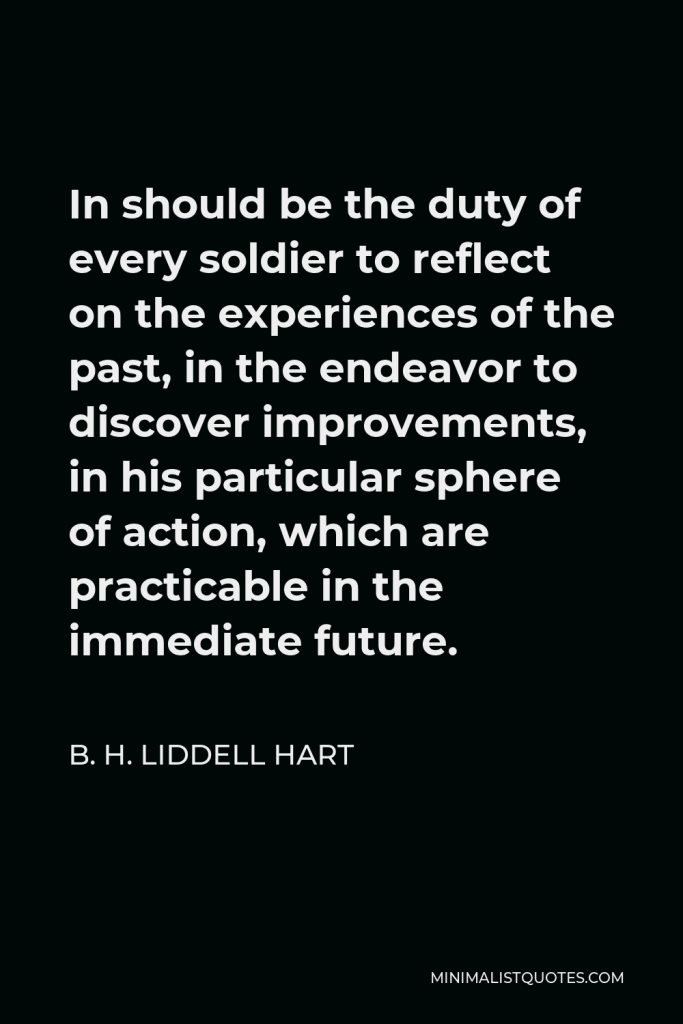

In should be the duty of every soldier to reflect on the experiences of the past, in the endeavor to discover improvements, in his particular sphere of action, which are practicable in the immediate future.
B. H. LIDDELL HART -





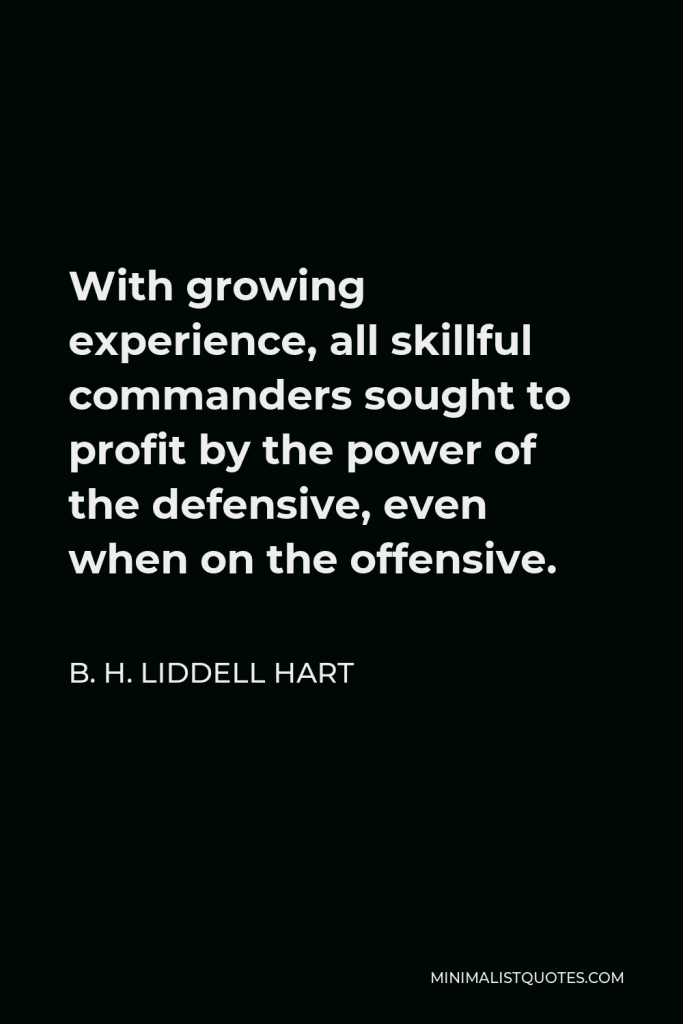

With growing experience, all skillful commanders sought to profit by the power of the defensive, even when on the offensive.
B. H. LIDDELL HART -





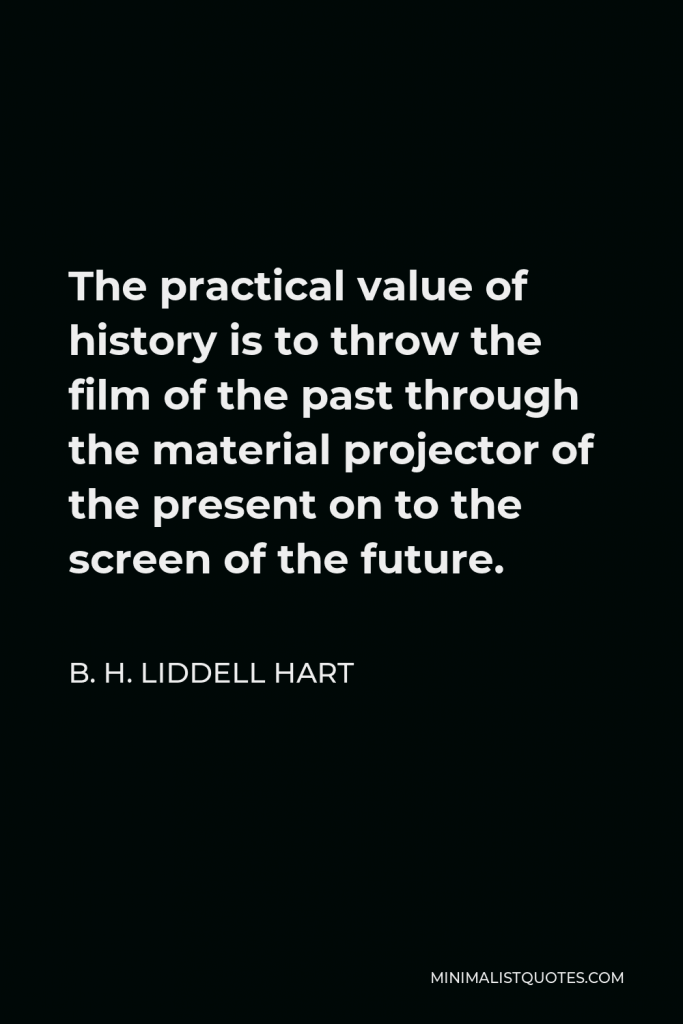

The practical value of history is to throw the film of the past through the material projector of the present on to the screen of the future.
B. H. LIDDELL HART
